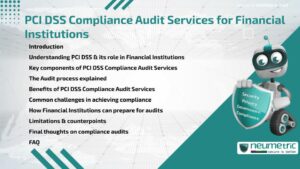Table of Contents
ToggleIntroduction
The General Data Protection Regulation [GDPR] imposes strict Rules on Companies handling Personal Data. GDPR Fines can be Hefty & Detrimental, especially for Businesses that fail to meet the Regulation’s Standards. Understanding What leads to these Fines & How to avoid them is crucial for maintaining Compliance & Protecting your Business from Costly Penalties.
Understanding GDPR Fines
GDPR Fines are Penalties imposed on Businesses that violate the Data Protection Laws set forth by the European Union [EU]. These Fines are categorized into Two Tiers: Lower-tier Fines (up to 10 Million Euros or 2% of Global Turnover, whichever is higher) & Higher-tier Fines (up to 20 Million Euros or 4% of Global Turnover, whichever is higher).
What Leads to GDPR Fines?
Non-compliance with GDPR can Result from various Factors, including:
- Failing to obtain consent for Data Processing.
- Not notifying Individuals or Authorities about Data Breaches within the required Timeframe.
- Inadequate Data Protection Measures & Security Practices.
- Lack of Proper Documentation & Data Subject Rights Procedures.
How to avoid GDPR Fines?
Avoiding GDPR Fines requires a proactive approach to Data Protection. Here’s how Businesses can stay Compliant:
- Ensure Explicit Consent from Individuals before Processing their Personal Data.
- Implement strong Data Protection & Encryption Measures.
- Establish clear Processes for Data Breach Notification & Incident Management.
- Regularly Audit your Data Processing activities to identify Vulnerabilities.
The Importance of Regular Audits
Regular Audits help Businesses assess their Data Protection Practices & Ensure Compliance with GDPR. Audits should focus on identifying Gaps in Security, improving Processes & Ensuring that Consent & Data Subject Rights are consistently respected.
GDPR Fines & Their Impact on Businesses
Aside from the Financial Costs, GDPR Fines can damage a Company’s Reputation. Customers are more likely to Trust Businesses that adhere to GDPR Standards & a Data Breach or Non-compliance can lead to Loss of Trust & Customers.
The Role of Data Protection Officers [DPO]
A Data Protection Officer [DPO] ensures Compliance with GDPR Regulations. Their Role includes overseeing Data Protection Practices, ensuring the Company meets GDPR requirements & reporting Data Breaches within the Legal Timeframe.
Documentation & Record–keeping Best Practices
Maintaining proper Documentation is essential to avoid GDPR Fines. Businesses must keep Records of Data Processing activities, including Consent Forms, Data Protection Assessments & Breach Notifications, to demonstrate Compliance.
Legal Steps to Take if Facing GDPR Fines
If your Business faces a GDPR Fine, it’s important to Assess the situation & Consult Legal Experts. Promptly Addressing the issue & taking Corrective Actions may help reduce the Severity of Penalties.
Takeaways
- GDPR Fines can be Substantial, ranging up to 20 Million Euros or 4% of a Company’s Global Turnover.
- regular Audits, strong Data Protection measures & proper Documentation are Key to avoiding Fines.
- Appointing a Data Protection Officer [DPO] & Maintaining Customer Trust are essential for Compliance.
FAQ
What are the Two Types of GDPR Fines?
The Two Types of GDPR Fines are Lower-tier Fines (up to 10 Million Euros or 2% of Global Turnover) & Higher-tier Fines (up to 20 Million Euros or 4% of Global Turnover).
What leads to GDPR Fines?
GDPR Fines are imposed for Violations like failing to obtain Consent, inadequate Data Protection measures & not Reporting Breaches in time.
How can Businesses avoid GDPR Fines?
Businesses can avoid Fines by implementing robust Data Protection Practices, conducting Regular Audits & Ensuring Proper Documentation.
What Role does a Data Protection Officer [DPO] play in avoiding GDPR Fines?
A DPO oversees Data Protection Compliance, manages Data Breaches & Ensures the Company adheres to GDPR requirements, helping avoid Fines.
References
- European Commission on GDPR
- ICO GDPR Overview
- GDPR Text
- NIST CyberSecurity Framework
- Data Protection Impact Assessment Guide
Need help?
Neumetric provides organisations the necessary help to achieve their CyberSecurity, Compliance, Governance, Privacy, Certifications & Pentesting goals.
Organisations & Businesses, specifically those which provide SaaS & AI Solutions, usually need a CyberSecurity Partner for meeting & maintaining the ongoing Security & Privacy needs & requirements of their Clients & Customers.
SOC 2, ISO 27001, ISO 42001, NIST, HIPAA, HECVAT, EU GDPR are some of the Frameworks that are served by Fusion – a centralised, automated, AI – enabled SaaS Solution created & managed by Neumetric.
Reach out to us!





